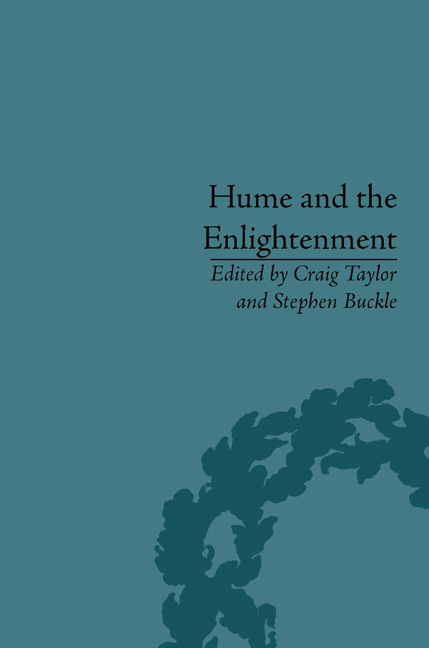Book contents
- Frontmatter
- CONTENTS
- Acknowledgements
- List of Contributors
- Abbreviations
- Introduction: Hume and his Intellectual Legacy
- 1 Hume and the Enlightenment
- 2 Will the Real Enlightenment Historian Please Stand Up? Catharine Macaulay versus David Hume
- 3 Philosophy, Historiography and the Enlightenment: A Response to Green
- 4 Hume's Enlightenment Aesthetics and Philosophy of Mathematics
- 5 Part 9 of Hume's Dialogues and ‘The Accurate Philosophical Turn of Cleanthes
- 6 ‘Strange Lengths’: Hume and Satire in the Dialogues Concerning Natural Religion
- 7 A Modern Malignant Demon? Hume's Scepticism with regard to Reason (Partly) Vindicated
- 8 Hume on Sympathy and Cruelty
- 9 Hume's Natural History of Justice
- 10 Hume and Rawls on the Stability of a Society's System of Justice
- 11 Can Hume's Impressions of Reflection Represent?
- 12 Mechanism and Thought Formation: Hume's Emancipatory Scepticism
- Notes
- Works Cited
- Index
10 - Hume and Rawls on the Stability of a Society's System of Justice
- Frontmatter
- CONTENTS
- Acknowledgements
- List of Contributors
- Abbreviations
- Introduction: Hume and his Intellectual Legacy
- 1 Hume and the Enlightenment
- 2 Will the Real Enlightenment Historian Please Stand Up? Catharine Macaulay versus David Hume
- 3 Philosophy, Historiography and the Enlightenment: A Response to Green
- 4 Hume's Enlightenment Aesthetics and Philosophy of Mathematics
- 5 Part 9 of Hume's Dialogues and ‘The Accurate Philosophical Turn of Cleanthes
- 6 ‘Strange Lengths’: Hume and Satire in the Dialogues Concerning Natural Religion
- 7 A Modern Malignant Demon? Hume's Scepticism with regard to Reason (Partly) Vindicated
- 8 Hume on Sympathy and Cruelty
- 9 Hume's Natural History of Justice
- 10 Hume and Rawls on the Stability of a Society's System of Justice
- 11 Can Hume's Impressions of Reflection Represent?
- 12 Mechanism and Thought Formation: Hume's Emancipatory Scepticism
- Notes
- Works Cited
- Index
Summary
Introduction
This chapter deals with differences between Hume and Rawls in their accounts of the requirement of stability in a society's system of justice in order to draw out fundamental differences in the way that their ideas of justice reflect enlightenment concerns. Although Rawls's position in Political Liberalism seems to converge with Hume's view that justice is an artificial virtue, the key to understanding differences in their accounts of the requirement of stability for a system of justice is that their reasons for viewing justice as artificial fundamentally differ.
To modern ears, to call a thing ‘artificial’ suggests that it is ‘contrived’ or not real. Hume means not this but only that our motive for justice is to uphold and play our part in property institutions, which are a human artifice, or social construction. For Hume (T 3.2.2.5/487), justice is artificial because we approve not of naturally implanted motives for individual action but of acquired motives shown in taking part in a collective practice, or institution, that society has developed over time to maintain conditions necessary for citizens to cooperate for mutual advantage, despite the potential for conflict in their competing claims to advantages that may be distributed among members of society in equal or unequal shares. This collective practice must be stable, because members of society could not otherwise be assured of mutual advantage through a peaceful settlement of competing claims to the fruits of their cooperation.
- Type
- Chapter
- Information
- Hume and the Enlightenment , pp. 143 - 156Publisher: Pickering & ChattoFirst published in: 2014



